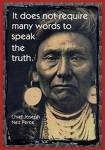
Initially, I confess that after the first few chapters, I was ready to write Diana Abu-Jaber's 2003 novel,
Crescent, off as pleasant, albeit gossamer-light, frothy "chick lit": a formulaic plotline, where an attractive, talented, but jaded and lovelorn chef finds amour at first sight with a dark, handsome, literary guy with a mysterious past, and they live happily ever after.
However, I'm happy to report that as it progressed, the novel grew on me and revealed a lot more complexity than was apparent at first inspection. A text rich with allusions, the title
Crescent captures the three intersecting worlds of the book: the romantic, the political, and the culinary.
A crescent moon, literally, is a lunar phase: a new moon that is waxing. As a metaphor, it represents a fresh start in life, perhaps even a budding romance, as in Shakespeare's
A Midsummer Night's Dream, where the Amazon queen Hippolyta affirms to her beloved, Theseus, that "the moon, like to a silver bow/New-bent in heaven, shall behold/The night of our solemnities." In Shakespeare, the moon bears witness to Hippolyta's and Theseus' wedding and heralds their deepening affection for each other. In this novel, Sirine, the 39-year-old protagonist, hovers on the cusp of middle age. Single and unattached, sought after by many of her cafe customers, yet curiously aloof, she finds love unexpectedly with Hanif Al Eyad,or "Han", Iraqi intellectual and newly-hired linguistics professor in the Near Eastern Studies department at UCLA.
The crescent also has political and religious implications. In conjunction with a star, it is a symbol associated with Islam and Arab countries, and discovering one's Arab identity is a recurring thread throughout the novel. Hanif also bears a crescent-shaped scar by his eye, a remnant of political persecution under the reign of Saddam Hussein. However, before its connection with Islam, the crescent moon was a symbol of Diana/Artemis, the goddess of chastity, and thus it also could connect to Sirine's solitude.
Finally, the crescent moon also has culinary connections, as it shares its shape with gh'rayba, shortbread cookies infused with orange-flower water. Apparently, Abu-Jaber also is a food writer; no surprise then, that the spicing and textures of food are sensuously and lavishly rendered. Food serves as a metaphor for Arab identity and culture, yet as with Proust, it also serves as a trigger for memory. Readers will undoubtedly also find linkages with the film
Chocolat , with its pretty confectioner who infuses love into her candies, and Laura Esquivel's magical-realist
Como Agua Para Chocolate , where food absorbs the emotions of its makers. In fact, not only does
Crescent's format echo Esquivel's novel: both are narratives followed by a cookbook chaser, but Abu-Jaber also gives a sly nod to Esquivel, as Sirine receives an unnamed book as a bridesmaid's present, "about a woman who cried into her cooking and infected her guests with her emotions".
While reading, I also noted several similarities between
Crescent and Shakespeare's
Othello . Both works explore themes of exile and straddling cultures, and without disclosing too many "spoilers" for the novel, Crescent, like
Othello, also has jealousy, betrayal, a misplaced love token, and has a character, Nathan, who obsessively records every small detail of Hanif and Sirine's relationship, echoing the way that Iago enviously marks the love between Othello and Desdemona.
In regard the book's architectural structure, Abu-Jaber interweaves two narratives, one real, the other fantastical. The fantastical strand, reminiscent of the tales in Scherherazade and the 1001 Nights, features Abdelrahman Salahadin, an ancestor of Sirine's paternal uncle, a Near Eastern scholar, translator, and storyteller. The magical-realist episodes, which begin every chapter of
Crescent, chart the adventures of the nomadic, wayward Salahadin, as he travels the world and eventually lands in Hollywood, assuming a new identity as Omar Sharif (yes, I'm serious; you'll have to read to find out how...) While the Salahadin stories seem a bit disconnected at first from the romantic narrative of Hanif and Sirine--there's arguable abruptness created in the narrative, due to the lack of transition between the fantastical and the real--astute readers will discover that the two strands not only parallel each other, but also echo Homer's
The Odyssey . No accident that Sirine's uncle describes Hanif as "a hero. Like Ulysses" (18)? Sirine's name, too, sounds like the fabled "Sirens", the women that almost fatally lured Ulysses to his death; yet in this case, the parallel is purely a playful one on Abu-Jaber's part.
So, in sum:
Crescent provides excellent summer reading: perfect beach fare with its sensuous lyricism and romance, yet just enough political and literary substance to assuage any guilty pangs.


